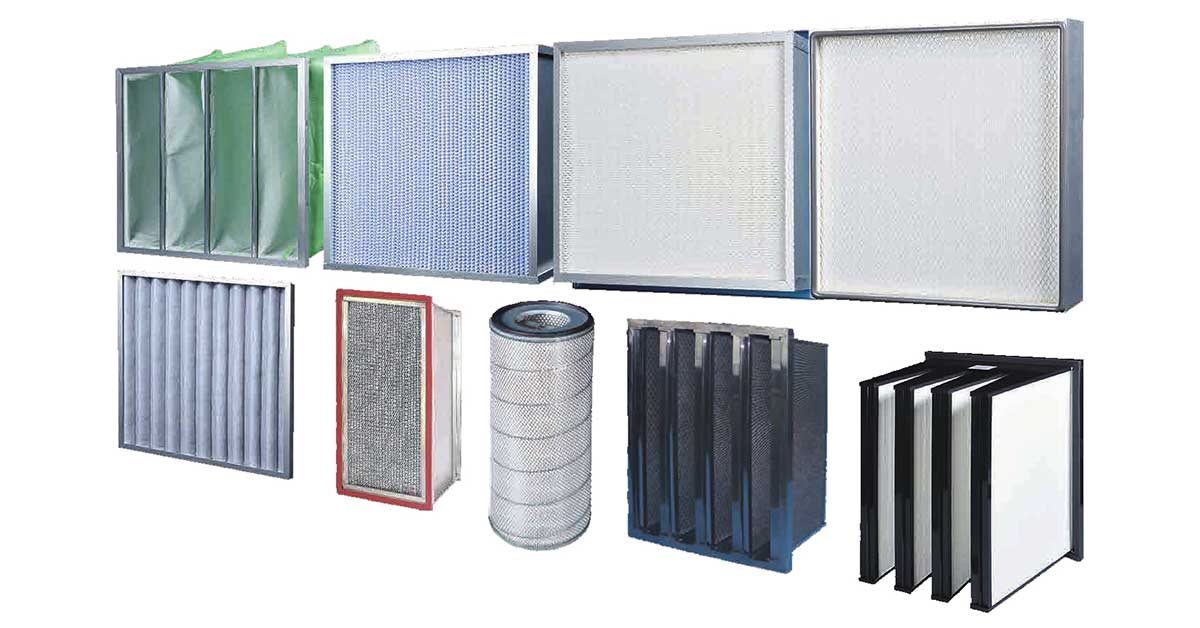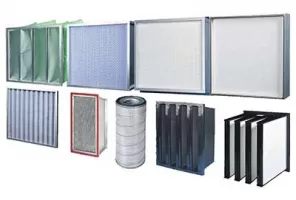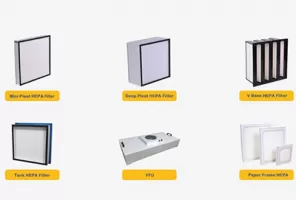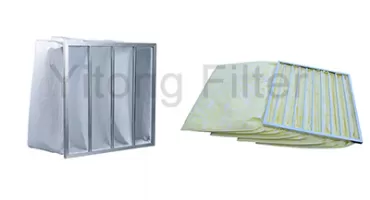 October 14, 2024
October 14, 2024
In today’s world, indoor air quality (IAQ) has become a significant concern, especially in workplaces, hospitals, and industrial spaces. One of the most effective tools for maintaining clean air is the F9 air filter. This filter is an essential part of modern HVAC systems, offering efficient dust and particulate removal while supporting healthy indoor environments.
In this guide, we’ll explore what makes the F9 filter unique, how it works, where it’s used, and why it’s critical for achieving optimal air quality. We’ll also dive into key product features, filtration standards, and how it compares to other filters. If you’re looking to improve your air quality and reduce airborne contaminants, this article will give you all the information you need!

The F9 filter is a high-performance filter designed to trap fine particles and pollutants from the air. It is commonly used in HVAC systems (Heating, Ventilation, and Air Conditioning) and air handling units (AHUs). This filter plays a crucial role in ensuring that ventilation systems maintain good IAQ by capturing particulate matter (PM), such as fine dust, allergens, and other airborne contaminants.
According to EN 779 standards, an F9 filter corresponds to a high-efficiency filter, often equivalent to MERV 15 under the North American system. It provides an ISO 16890 rating of ePM1 80%, meaning it removes at least 80% of airborne particles smaller than 1 micron. These features make it ideal for applications that require cleaner and safer indoor environments.
Its F9 efficiency rating ensures the removal of fine particulate matter, safeguarding gas turbine components from damage and maintaining operational efficiency.
Poor air quality can negatively impact health, leading to respiratory problems, allergies, and even chronic illnesses. This is especially concerning in sensitive environments like hospitals, offices, and cleanrooms, where proper air filtration is essential.
F9 filters are a vital component in commercial HVAC systems designed to improve IAQ. They help control airborne contaminants such as dust, mold spores, and bacteria, ensuring healthier air for building occupants. Using high-efficiency filters also helps industries meet environmental standards and obtain certifications like LEED (Leadership in Energy and Environmental Design).
High Dust-Holding Capacity
F9 filters are built with synthetic filter media that holds large amounts of dust without clogging quickly, ensuring extended service life and reducing maintenance needs.
Low Pressure Drop
One of the challenges of high-efficiency filters is maintaining high airflow while filtering out fine particles. F9 filters achieve this balance with a low-pressure drop, allowing HVAC systems to run more efficiently and save energy.
Energy-Efficient Filter
Since they don’t strain the system, F9 filters help lower energy consumption, making them an environmentally friendly choice for commercial HVAC systems.
Synthetic Media Filter
F9 filters use synthetic filter media instead of traditional fiberglass. This material is highly effective in capturing fine dust and particulate matter (PM), ensuring cleaner air for sensitive environments.
F9 filters are versatile and used across many industries and environments. Some of the common applications include:
Hospitals and Healthcare Facilities: Critical for maintaining sterile environments and preventing the spread of infections through ventilation systems.
Cleanrooms: Essential in industries like pharmaceuticals and electronics, where even the smallest airborne particle can compromise product quality.
Office Buildings and Commercial Spaces: F9 filters help improve indoor air quality, enhancing employee health and productivity.
Industrial Air Filters: Used in manufacturing plants to control dust and pollutants from machinery and processes.
Air Handling Units (AHU): Installed within air handling units to filter air before it is distributed throughout buildings.
Power Plant: Suitable for a wide range of gas turbine systems, this filter is ideal for power generation, oil and gas, and industrial applications.
To understand the value of an F9 filter, it’s useful to compare it with other filtration options based on filtration grade and efficiency.
| Filter Type | MERV Rating | EN 779 Class | Efficiency |
| F7 Filter | MERV 13 | ePM10 70% | Medium |
| F8 Filter | MERV 14 | ePM2.5 70% | High |
| F9 Filter | MERV 15 | ePM1 80% | Very High |
The F9 filter stands out due to its ability to trap finer particles (ePM1) compared to F7 or F8 filters, making it ideal for environments that demand higher levels of filtration.
Using F9 filters can help organizations meet indoor air quality and environmental standards required for certification programs like LEED. These filters support sustainable building practices by ensuring energy-efficient operation, reducing environmental impact, and promoting occupant well-being.
To ensure peak performance, F9 filters should be regularly inspected and replaced according to the manufacturer’s guidelines. Filter maintenance depends on several factors, including:
Air quality in the environment
Operating hours of the HVAC system
Type of pollutants being filtered
Replacing filters on time ensures that the system maintains high airflow and filtration efficiency while minimizing energy consumption. Neglecting filter changes can lead to clogged filters, higher energy costs, and reduced air quality.
When selecting an F9 filter, it’s essential to consider the following factors:
Size and Compatibility: Make sure the filter fits your HVAC system or air handling unit.
Filtration Requirements: Evaluate the pollutants you need to remove (e.g., fine dust or allergens).
Pressure Drop Ratings: Look for filters with a low-pressure drop to ensure energy-efficient operation.
Service Life: Check the filter’s dust-holding capacity and replacement frequency to estimate long-term costs.
Conclusion
An F9 air filter is a highly efficient solution for improving indoor air quality in commercial spaces, hospitals, cleanrooms, and more. Its high dust-holding capacity, low pressure drop, and ability to capture fine particulate matter (PM) make it a reliable choice for demanding environments. By using F9 filters, businesses and industries can ensure cleaner air, meet environmental standards, and maintain energy-efficient HVAC operations.
Whether you are managing a hospital ventilation system, equipping an office building, or installing industrial air filters, the F9 filter offers a long-lasting and effective solution. Regular maintenance and timely replacement will ensure your HVAC system performs at its best, keeping both energy costs and contaminants under control.
 Feb. 10, 2025
HEPA Filters for HVAC: What You Need to Know
Feb. 10, 2025
HEPA Filters for HVAC: What You Need to Know
 Jan. 03, 2025
Semiconductor Fabrication Cleanroom Filters: Ensuring Purity in High-Tech Manufacturing
Jan. 03, 2025
Semiconductor Fabrication Cleanroom Filters: Ensuring Purity in High-Tech Manufacturing
 Aug. 07, 2023
Primary Efficiency Air Filter G4
Aug. 07, 2023
Primary Efficiency Air Filter G4